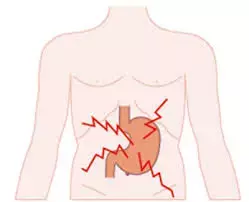- Home
- Medical news & Guidelines
- Anesthesiology
- Cardiology and CTVS
- Critical Care
- Dentistry
- Dermatology
- Diabetes and Endocrinology
- ENT
- Gastroenterology
- Medicine
- Nephrology
- Neurology
- Obstretics-Gynaecology
- Oncology
- Ophthalmology
- Orthopaedics
- Pediatrics-Neonatology
- Psychiatry
- Pulmonology
- Radiology
- Surgery
- Urology
- Laboratory Medicine
- Diet
- Nursing
- Paramedical
- Physiotherapy
- Health news
- Fact Check
- Bone Health Fact Check
- Brain Health Fact Check
- Cancer Related Fact Check
- Child Care Fact Check
- Dental and oral health fact check
- Diabetes and metabolic health fact check
- Diet and Nutrition Fact Check
- Eye and ENT Care Fact Check
- Fitness fact check
- Gut health fact check
- Heart health fact check
- Kidney health fact check
- Medical education fact check
- Men's health fact check
- Respiratory fact check
- Skin and hair care fact check
- Vaccine and Immunization fact check
- Women's health fact check
- AYUSH
- State News
- Andaman and Nicobar Islands
- Andhra Pradesh
- Arunachal Pradesh
- Assam
- Bihar
- Chandigarh
- Chattisgarh
- Dadra and Nagar Haveli
- Daman and Diu
- Delhi
- Goa
- Gujarat
- Haryana
- Himachal Pradesh
- Jammu & Kashmir
- Jharkhand
- Karnataka
- Kerala
- Ladakh
- Lakshadweep
- Madhya Pradesh
- Maharashtra
- Manipur
- Meghalaya
- Mizoram
- Nagaland
- Odisha
- Puducherry
- Punjab
- Rajasthan
- Sikkim
- Tamil Nadu
- Telangana
- Tripura
- Uttar Pradesh
- Uttrakhand
- West Bengal
- Medical Education
- Industry
H. pylori eradication associated with improvement and cure of FD symptoms: Study

H. pylori eradication is associated with the improvement and cure of functional dyspepsia (FD) symptoms, according to a recent study published in the Gut.
Functional dyspepsia (FD) is a chronic disorder that is difficult to treat. Helicobacter pylori may contribute to its pathophysiology. A Cochrane review from 2006 suggested that eradication therapy was beneficial, but there have been numerous randomised controlled trials (RCTs) published since. We evaluated the impact of eradication therapy on both cure and improvement of functional dyspepsia, as well as whether any benefit was likely to arise from the eradication of H. pylori.
They searched the medical literature through October 2021 to identify RCTs examining the efficacy of eradication therapy in H. pylori-positive adults with functional dyspepsia. The control arm received antisecretory therapy or prokinetics, with or without placebo antibiotics, or placebo alone. Follow-up was for ≥3 months. They pooled dichotomous data to obtain a relative risk (RR) of symptoms not being cured or symptoms not improving with a 95% CI. Researchers estimated the number needed to treat (NNT).
Results:
Twenty-nine RCTs recruited 6781 H. pylori-positive patients with functional dyspepsia. Eradication therapy was superior to control for symptom cure (RR of symptoms not being cured=0.91; 95% CI 0.88 to 0.94, NNT=14; 95% CI 11 to 21) and improvement (RR of symptoms not improving=0.84; 95% CI 0.78 to 0.91, NNT=9; 95% CI 7 to 17). There was no significant correlation between eradication rate and RR of functional dyspepsia improving or being cured (Pearson correlation coefficient=−0.23, p=0.907), but the effect was larger in patients with successful eradication of H. pylori than with unsuccessful eradication (RR=0.65; 95% CI 0.52 to 0.82, NNT=4.5, 95% CI 3 to 9). Adverse events (RR=2.19; 95% 1.10 to 4.37) and adverse events leading to withdrawal (RR=2.60; 95% CI 1.47 to 4.58) were more common with eradication therapy.
There is high-quality evidence to suggest that H. pylori eradication therapy leads to both cure and improvement in functional dyspepsia symptoms, although the benefit is modest.
Reference:
Efficacy of Helicobacter pylori eradication therapy for functional dyspepsia: updated systematic review and meta-analysis by Alexander C Ford et al. published in the Gut.
https://gut.bmj.com/content/early/2022/01/11/gutjnl-2021-326583
Keywords:
H. pylori, eradication, associated, improvement, cure, functional, dyspepsia, gut, bmj journal, Alexander C Ford, Evangelos Tsipotis, Yuhong Yuan, Grigorios I Leontiadis, Paul Moayyedi,
Dr. Shravani Dali has completed her BDS from Pravara institute of medical sciences, loni. Following which she extensively worked in the healthcare sector for 2+ years. She has been actively involved in writing blogs in field of health and wellness. Currently she is pursuing her Masters of public health-health administration from Tata institute of social sciences. She can be contacted at editorial@medicaldialogues.in.
Dr Kamal Kant Kohli-MBBS, DTCD- a chest specialist with more than 30 years of practice and a flair for writing clinical articles, Dr Kamal Kant Kohli joined Medical Dialogues as a Chief Editor of Medical News. Besides writing articles, as an editor, he proofreads and verifies all the medical content published on Medical Dialogues including those coming from journals, studies,medical conferences,guidelines etc. Email: drkohli@medicaldialogues.in. Contact no. 011-43720751


